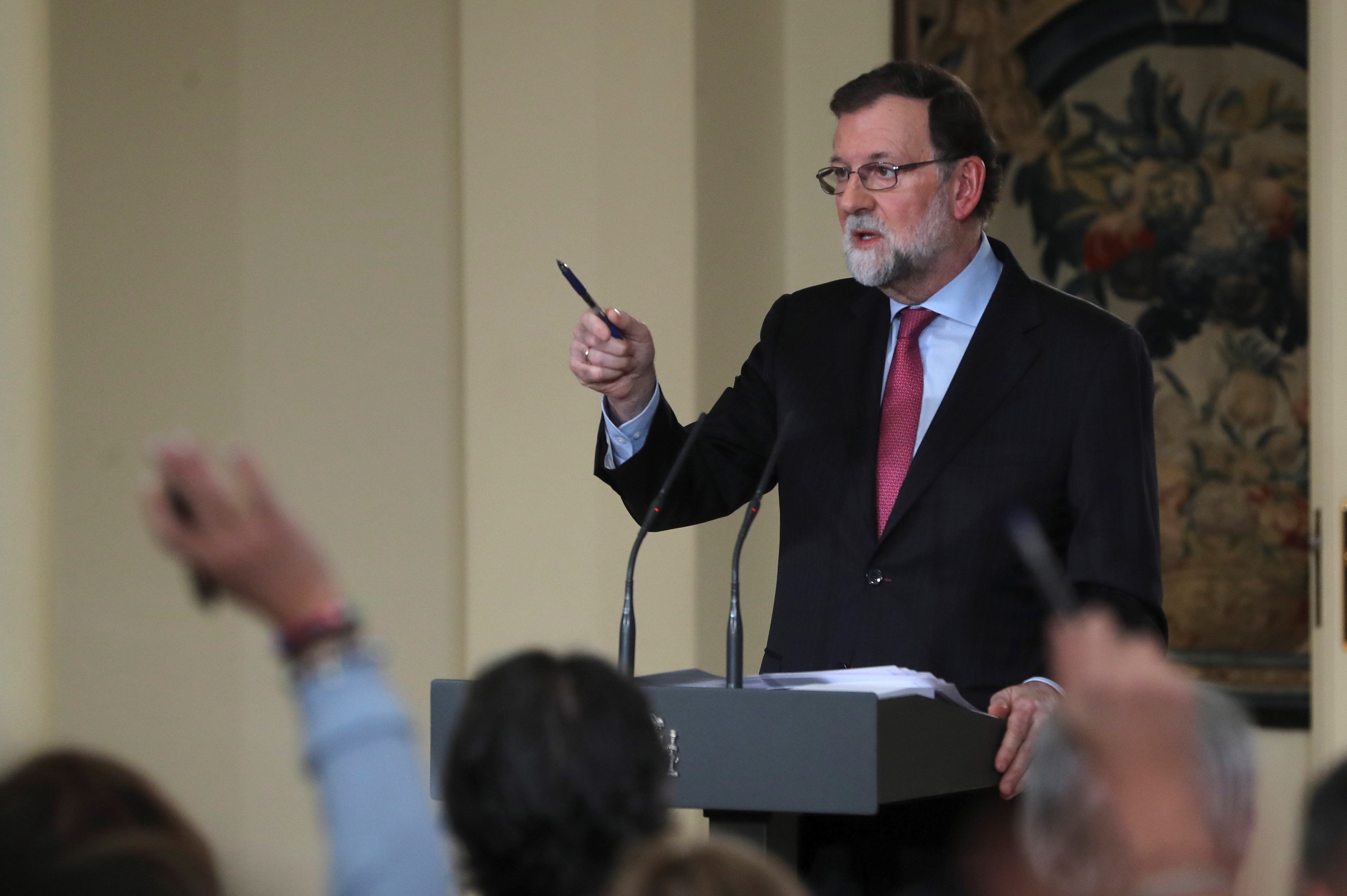After taking the exceptional step of calling Catalan elections under the Spanish government's assumed powers of direct rule over Catalonia, Mariano Rajoy also had it in his own power to set a date for the constitutive session of the newly-elected Parliament. And he has now set that date, as part of his evaluation of the year 2017, given following the Spanish government's cabinet meeting this Friday. The Catalan chamber will be called to meet on Wednesday 17th January. This is six days before the limit marked by the law: the Spanish Prime Minister had latitude to choose a date no later than 23rd January.
After the Spanish executive's final meeting for the year, Mariano Rajoy announced details of this constitutive session. According to Rajoy, he will undertake a round of contacts with the different parties prior to the meeting of the Catalan Parliament, although he did not indicate which parties he will speak to, and whether the pro-independence candidatures will be part of this process. He boasted of having saved the Catalan economy through the application of article 155, under which his government took direct control of Catalonia, and insisted once again that the renewed pro-independence majority must give up its unilateral approach and submit itself to the "reign of the law".
Rajoy, who dedicated a large part of his assessment of 2017 to vaunting his government's economic management, admitted that it has not been an “easy year”. He assured that the only “destabilizing factor”, the only “shadow” looming over Spain's economic growth, has been that of the Catalan independence process, which he described as “the greatest attack on our Constitution”.
Neither recognition nor legitimacy
It is in this constitutional sense that he defended the application of article 155. As he has already stated on other occasions, the Spanish PM affirmed that his government had “applied the law in order to defend the law”. Facing this difficulty, he asserted, has "demonstrated the quality of our democracy”. And he warned the independence movement: “Europe will not grant [you] any recognition or legitimacy, as has been shown”.
He left the composition of the Catalan Parliament's presiding Board as well as of the new Catalan government itself in the hands of the parties that have a parliamentary majority. However, he did give a reminder that the Catalan executive “must operate within the law”, that “there is no place for any further appeals to rupture and illegality”. "The law will not allow it" he said, and besides, they “cannot claim to have majority support".
"I hope that as soon as possible we can expect to have a Catalan government capable of dialogue and of reaching an understanding with all Catalans and with the rest of Spaniards”, said Rajoy, and he added: “I hope that as soon as possible we can expect to have a government able to turn around the severe economic damage done”. A “deterioration in the economy” which, he asserted, “it has only been possible to mitigate partially under the security which article 155 has provided”.
Plurality, not unilateralism
From his official residence, the Moncloa, the Spanish PM claimed that the new Catalan government will be offered “all our collaboration and the greatest willingness for dialogue”, as long as it did not enter areas that were not legal. “I hope that we are now entering an era based on plurality, not on unilateralism”, he concluded.
Asked about the possibility of investing Carles Puigdemont as Catalan president by telematic means from outside Spain, as suggested by the Together for Catalonia (JxCAT) group, Rajoy thought it “absurd” to “try to govern a Spanish region from abroad”. "Imagine that I was in Lisbon", he added. Moreover, he said that he would not offer as candidate for his party “someone who has fled from justice”, because that does not part of the “basic values of a democracy”.

